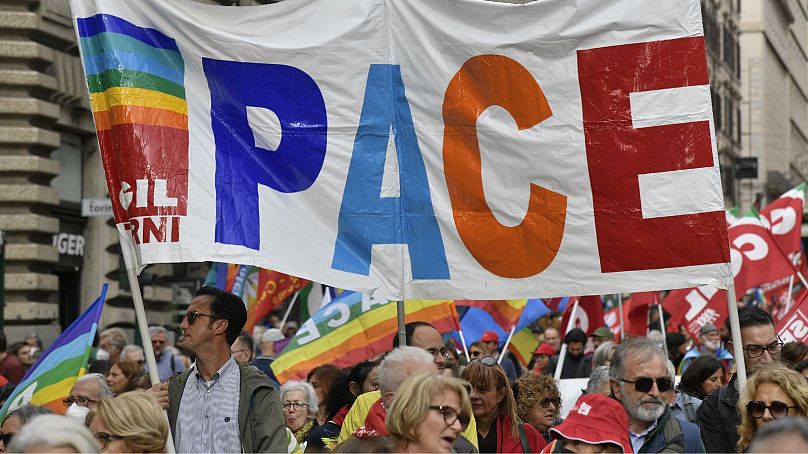Under Giorgia Meloni's government's new proposal, Italy would be able to export arms to countries at war as well as to those with a poor track record of human rights violations, evading bans that currently stop it from doing so.
Italy’s right-wing government coalition, led by Brothers of Italy’s Giorgia Meloni, has drafted a new law which, if passed, would make it easier for the country to sell arms abroad and which would give a political body the power to decide when international bans and limits to the sales apply.
 ADVERTISEMENT
ADVERTISEMENT
 ADVERTISEMENT
ADVERTISEMENT
Under the existing law 185, which dates back to 1990, the respect and protection of human rights prevail over the interest of making a sale, meaning that Italy cannot export arms when doing so violates its international agreements, when it involves countries at war, or when it has to do with states whose governments are responsible for serious human rights violations.
These violations have to be recognised by a pertinent international body, according to the law - a process which can be slow and lengthy and which has its obvious limitations.
On top of that, the current regulation imposes a number of procedures and checks on companies selling and trading arms, including the obligation to share information on completed sales and their profits.
A political body called CISD - which stands for “inter-ministerial committee for the trade of arms for defence” - is in charge of overseeing that the existing bans and laws limiting the export of arms from the country are applied correctly.
This political body, formed by some of the government’s own ministers, is now the focus of the changes suggested in the draft proposed by Meloni’s government. Under the proposal, the CISD will acquire the power to decide when bans should be applied, instead of simply making sure they’re enforced.
What would change with the new proposal?
Under the new law, the exports of landmines, cluster bombs, and biological and nuclear arms will remain forbidden, as well as the bans imposed by the European Union. In any other case, the CISD will be able to decide at its discretion on arms exports, and the issuing of arms export licenses will be sped up.
This means that the CISD could decide that Italy is allowed to sell weapons to countries at war or to authoritarian regimes guilty of human rights violations, despite previous bans preventing it from doing so - as long as these violations are not recognised by "pertinent institutions".
Crucially, the CISD will not be forced to consider information on human rights violations received from international bodies and NGOs.
These changes to the law are allowed because Italy’s legislation on the export of weapons dates back to 1990 - before the European Union came up with its own rules about the issue - and because the 2008 European Union Common Position on arms exports has hardly been effective, as reported in a 2022 study.
Considering the CISD would be formed by members of Meloni’s government, it’s hard to see how they could decide against what the prime minister and her cabinet seem eager to achieve - scaling up Italy’s arms exports, including to countries that might be compromised on a human rights and ethical level.
‘Our weapons could be used to commit human rights abuses’
The existing law, according to Francesco Vignarca of Rete Italiana Pace e Disarmo, an Italian NGO promoting peace and supporting demilitarisation, “is not one that has hindered Italy’s arms sales. In fact, we’ve seen that in recent years sales volumes have grown.”
So why would the government want to change this law, Vignarca asked, saying that they want to free the Italian industry from rules that are stricter than in the rest of Europe?
“Because the law, though it’s not always applied correctly, has allowed us - together with other organisations - to stop and then cancel Italy’s arms sales to countries like Saudi Arabia,” Vignarca told Euronews. “So this type of control must be eliminated, and give the power to the political class only to decide on arms exports.”
Vignarca told Euronews that his group fears that the proposed law would allow for arms sales which are against international humanitarian law, human rights law, and EU law to go forward unchecked, “without passing through Parliament”.
The new law would also prevent groups like Vignarca’s from challenging the CISD’s decisions to sell to certain countries, making the political decision behind the sales “unquestionable”.
“Our country was a trailblazer in creating legislation limiting arms exports, but now we want to go back to consider it a merely economical and political issue,” Vignarca said.











